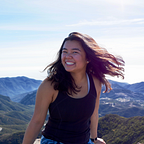How to get the advantages of an internship without having one
Tips from a once called hustler.
When I was sixteen, one of my first co-workers called me a, “hustler.” To give some background, the day after I turned 16, I got my first job. 4 years later, I still consider myself to be a “hustler,” driven and constantly creating action plans to achieve my goals. Naturally, one of my First Year of College Goals was to get a summer internship. Gratefully, with the help of some connections and past experiences, I was able to pursue two internships that summer. Then, fall semester of my Second Year of College, the search for an internship only intensified. I began attending recruiting events, career fairs, and obsessively visited our school’s career portal.
Then, spring semester I studied abroad and didn’t have direct access to these opportunities. Fortunately, I was able to get a summer internship. However, because of Visa complications, my 3-month internship turned into a 1-month internship.
During those 2 non-interning months, I still wanted to expand my network, gain insights into future career fields, and continue my personal development.
But being in a foreign country, with little connections and a non-work Visa, how could I? I had to find my own opportunities.
How could I fulfill what a summer internship offers without an internship?
Here’s what I found to be effective during those two non-interning months:
1. Reach out to your weak connections.
As Dr. Meg Jay cites in a study, conducted by Stanford Professor Mark Granovetter, in her book The Defining Decade: Why Your Twenties Matter — And How to Make the Most of Them Now, “weak-tie acquaintances were often more important than strong-tie friends because weak ties give us access to social networks where we don’t otherwise belong.”
Just through college, us students, are naturally exposed to a network. Although colleges tend to host events for alumni networking, these events rarely give students exposure to the full network that exists. Then on LinkedIn, students feel pressured to hit that 500+ connections mark.
But, how many times are we actually using these connections?
That’s when I say, reach out. A subscriber to John Locke’s school of thought, I believe that people are born good. Most people inherently like and want to help others. So, start to connect with others.
Use LinkedIn’s search filters to filter the search by location, job type, company, or/and school, to find those you’re most interested in connecting with. Then, send them a quick LinkedIn message introducing yourself, your purpose for reaching out, and asking politely for their time.
3 out of the 7 alumni I reached out to, messaged me back. Through our conversations, I was given some of the best career advice, resources, and was offered other opportunities. I was able to shadow one of them, was referred to another one of their connections, and was offered a potential internship for next summer. Just through showing interest in their field, they were more than happy to help.
2. Expand your view with books.
A speaker on a podcast, I was listening to the other day, stated something along the lines of, “Professionals compile all their thoughts and advice into a couple hundred pages. Then, before being published this book is thoroughly edited and overseen by other professionals. So, it’s like — why wouldn’t you pay $15 to download it, from Amazon or iBooks, to get immediate access to this advice. All you have to do is read it.” Although I had been reading before hearing this quote, it really stuck with me. Reading just makes sense.
3. Continue your learning with podcasts.
Whether you’re driving, walking to class, or my favorite — getting ready in the morning, you can listen to a podcast. I guarantee, if you want to learn more about your aspiring career path, there’s a podcast for it. As an aspiring UX Designer, lately I’ve been listening to High Resolution. Here, two young professionals interview design experts from an array from companies like Spotify, IBM, Uber, etc.
Before I enter an interview, I like to review current events in case they’ll come up casually or formally in the interview. Summer is the perfect time to create good habits. To keep up with the world and American politics, I’ve enjoyed listening to NPR’s Up First and The New York Times’ The Daily.
Some other personal favorites to learn new things: Freakonomics Radio, NPR’s Hidden Brain, and Queer Eye’s famous Johnathan Van Ness’s Getting Curious with Jonathan Van Ness.
4. Start your side hustle.
These were words of advice given to me by one of the alumni I connected with this summer.
What’s something you do or can do during your off time, from school or work, which somehow relates to your professional pursuit that you can passionately talk about in an interview?
I admit, trying to find what your side hustle is proves to be difficult. But, nonetheless it’s something good to start thinking about.
5. Reflect.
At times, I think we get so wrapped up in the paths we feel like we’re “supposed” to take and rarely spend time actually considering if that path is right for us. Spend some time thinking about your passions and consider if this plays any role in your intended future career. If you reach out to alumni, ask them about the cons of the field and see if you also consider these to be pain points. Research companies within your intended field on Glassdoor, to learn more about salaries and company reviews.
Remember, these tips can be used not only during the time you’re “supposed to be” having an internship, but anytime throughout your career hunt. Although they don’t guarantee a shiny ribbon on your updated resume, I truly think they’ll help you get there.
If you enjoyed this article, please give it a clap! Also, if you have any questions feel free to connect with me.
